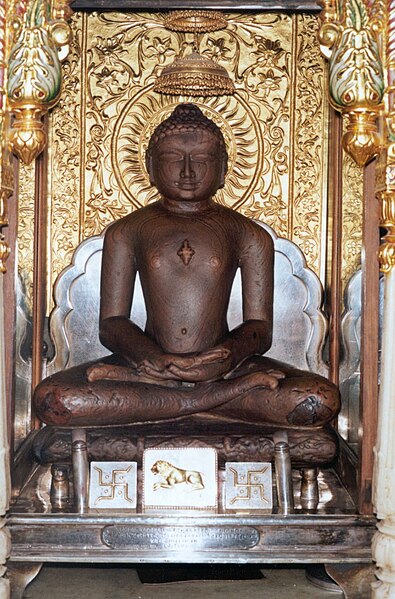Satya is a Sanskrit word loosely translated as truth or essence. It also refers to a virtue in Indian religions, referring to being truthful in one's thoughts, speech and action. In Yoga, satya is one of five yamas, the virtuous restraint from falsehood and distortion of reality in one's expressions and actions.
Satya is an important concept and virtue in Indian religions. Rigveda, dated to be from the 2nd millennium BCE, offers the earliest discussion of Satya. It can be seen, for example, in the fifth and sixth lines, in this Rigveda manuscript image.
Indian religions, sometimes also termed Dharmic religions or Indic religions, are the religions that originated in the Indian subcontinent. These religions, which include Buddhism, Hinduism, Jainism, and Sikhism, are also classified as Eastern religions. Although Indian religions are connected through the history of India, they constitute a wide range of religious communities, and are not confined to the Indian subcontinent.
"Priest King" of Indus Valley civilisation
The so-called Pashupati seal, showing a seated and possibly ithyphallic figure, surrounded by animals.
A statue of Gautama Buddha from Sarnath, Uttar Pradesh, India, 4th century CE.
The idol of Mahavira, the 24th and last Tirthankara of Jainism.





